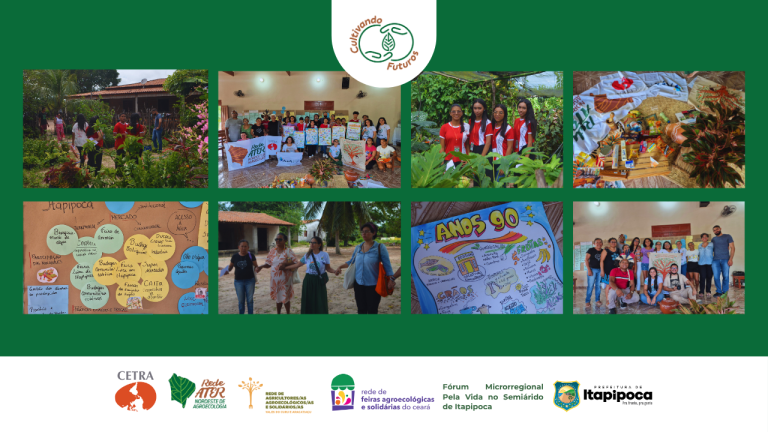Formação pela Experimentação em Manejo da Caatinga
Area of activity: Central Hinterland
Start: 2009
The Dom Helder Câmara Project (PDHC) comes from a loan agreement between the Brazilian Government through the Ministry of Agrarian Development (MDA) and the International Fund for Agrarian Development (IFAD). It comes with the proposal of structuring actions to strengthen agrarian reform and family agriculture in the northeastern semi-arid region and to effectively invest in the articulation and organization of social participation spaces, operating in six states of the region: Sergipe, Pernambuco, Paraíba, Rio Grande do Norte , Piauí and Ceará. Through the Territorial Committees and Steering Committee, family farmers and agrarian reform settlers discuss their needs, express their views on the possibilities and define priority actions that can significantly change the course of their lives.
One of the arms of the PDHC is Projeto Sertão, which aims to contribute to the sustainable development and improvement of the quality of life of populations affected by the environmental degradation of semi-arid lands with an intersectoral approach in public activities in support of sustainable production and the reduction of poverty. In addition, it works to minimize the causes and negative impacts on the ecosystems of the caatinga biome by implementing systems that work the land in a sustainable way.
CETRA, within the Sertão Project, develops the Training Project for the Experimentation in Management of the Caatinga. It seeks to provide specific technical advice through a territorial process of training through experimentation, that is, through practices, and monitoring of environmental, productive, economic and social gains. There are nine settlements / communities, each with an experimental project developed according to its specific focus and appropriate to its profile of productive use, its demands, and related to the environmental physiognomy of each locality.
To train by experimentation is to build and expand the knowledge with the farming families in order to strengthen the structuring of their agroecosystems, using in a sustainable way the native forest formation. Thus, the management process of the biome is integrated into the productive projects of families, seeking to contribute to food security and income generation of families, as well as working to promote equity in gender and generation relations.
Visit the project website: http://www.projetodomhelder.gov.br/
{vsig}projetos/manejocaatinga{/vsig}


